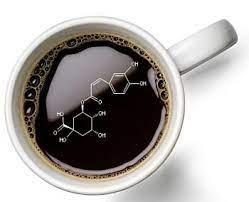How coffee affects the brain, body, and health - Neuroscience News
Curated from: neurosciencenews.com
20
Explore the World's Best Ideas
Join today and uncover 100+ curated journeys from 50+ topics. Unlock access to our mobile app with extensive features.
Reading this with a cup of coffee,aren't you?
The main biologically active ingredients in coffee are caffeine (a stimulant) and a suite of antioxidants.The stimulant properties of caffeine mean that you can count on a cup of coffee to wake you up. In fact, coffee, or at least the caffeine it contains, is the most commonly used psychoactive drug in the world. It seems to work as a stimulant, at least in part, by blocking adenosine, which promotes sleep, from binding to its receptor.
28
450 reads
What about the antioxidnants present in it?
Metabolic processes produce the energy necessary for life, but they also create waste, often in the form of oxidized molecules that can be harmful in themselves or in damaging other molecules.Antioxidants are a broad group of molecules that can scrub up dangerous waste
27
360 reads
Does coffee have an effect on cancer?
Coffee won’t cure cancer, but it may help to prevent it. What is cancer? At its simplest, cancer is uncontrolled cell growth, which is fundamentally about regulating when genes are, or are not, actively expressed.The antioxidants in coffee may actually have a cancer-fighting effect. Remember that antioxidants fight cellular damage. One type of damage that they may help reduce is mutations to DNA, and cancer is caused by mutations that lead to the misregulation of genes.
27
327 reads
Long term effect of coffee, "brain entropy"
Caffeine has a longer-term brain effect that initially sounds frightening – it sparks “brain entropy.” Odd as it seems, this is actually a good thing.caffeine, as a potent psychostimulant, facilities faster information processing—causing brain networks to connect with more speed and efficiency-through a process of “cerebral entropy,”even when the brain isn't actively engaged. The researchers reported they found that caffeine “increased resting brain activity irregularity or complexity, suggesting an increase of information processing capacity in the resting brain.”
30
337 reads
The bottom line
This effect may underlie outcomes found in previous observational research showing that in the long-term caffeine appears to improve cognitive performance, including verbal memory, and may also protect against cognitive decline.
Apart from all the medical benefits, if a cup of god brewed coffee improves your day, then go for it.
:)
28
329 reads
IDEAS CURATED BY
Abhikrit patel's ideas are part of this journey:
Learn more about health with this collection
How to stay motivated
How to create a workout routine
Proper form and technique for home workouts
Related collections
Similar ideas
5 ideas
Coffee ☕️ | The Nutrition Source
hsph.harvard.edu
6 ideas
What Is Caffeine, and Is It Good or Bad for Health?
healthline.com
6 ideas
Instant Coffee: Good or Bad?
healthline.com
Read & Learn
20x Faster
without
deepstash
with
deepstash
with
deepstash
Personalized microlearning
—
100+ Learning Journeys
—
Access to 200,000+ ideas
—
Access to the mobile app
—
Unlimited idea saving
—
—
Unlimited history
—
—
Unlimited listening to ideas
—
—
Downloading & offline access
—
—
Supercharge your mind with one idea per day
Enter your email and spend 1 minute every day to learn something new.
I agree to receive email updates



